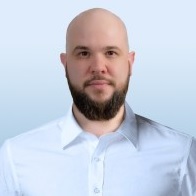As we start our journey in software development, many of us become obsessed with learning as much as we can. Programming languages, frameworks, and new technologies are just some items on that extensive, geeky menu.
Exciting as it is, we delve into a sea of syntax and try to learn all the new hot things in the market. Not to our fault, I should say. New frameworks come out almost every month and somehow get significant traction from early adopters. As we look at job postings, we see young businesses using those technologies already, and we immediately buy into the idea that it’s something we just have to learn.
As I see it, that is where the problem starts. It is impossible to keep up with all the latest programming languages and development frameworks out there. Yes, one can learn the basics, but not enough to get to the specialist level. So precious time is spent learning a technology, only to move on to the next new thing a few weeks later. As a result, nothing is ever retained.
Time is a limited resource. When choosing to learn a new programming language, this choice implies avoiding specializing in something you already know. Would you rather become a senior in one technology or be forever a junior in five?
My answer is: Pick one and learn it well. In my experience, this strategy can take you a lot farther. Knowing all the nuts and bolts and understanding what is happening is more important in the long haul than having five different languages in your resume. To succeed, you need confidence. To be confident, you need to know what you’re talking about.
So how do you even pick the one thing to learn? That is a very personal question, and ultimately, it will be for you to figure out. First, think about who you want to be or the job title you wish to have. Second, think about where you want to go. What companies would you like to pursue a career in? Once you answer those questions, just go online and look up what technologies they are using for that kind of job. This information can be valuable in outlining a plan to get there, and is a lot more precise than just shooting everywhere without aim. Focus is a key ingredient in achieving anything meaningful.
About the Author

Luiz Parente is a senior software engineer who is passionate about systems design and technology. Having started his journey in computer programming at the age of 14, his core expertise is centered in solutions architecture with .NET technologies.
Follow Luiz on LinkedIn